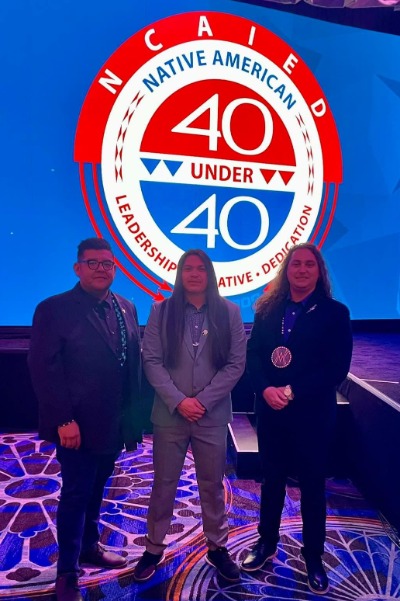
Cole Rush speaks with Justin Dellario, CEO of esports operator Unikrn, about engaging his core audience, the intersection between esports and betting, and the challenges of entering the US market.
As CEO of Unikrn and managing director of esports at Entain, Dellario has been very busy in recent months.
Entain relaunched Unikrn in December last year after acquiring the esports operator in October 2021.
The relaunch consisted of Unikrn going live in Brazil and Canada (excluding Ontario), with the goal of entering the US sooner rather than later.
For Dellario, Unikrn offers everything you need to be successful in regulated markets and a little more.
“We have one of the most comprehensive offerings of esports betting markets and features in the world,” says Dellario. “We also have a full-fledged, traditional sports betting offering that sits right alongside e-sports.”
However, the product is not over yet. Dellario points to other opportunities the company offers esports fans and gamers: skill-based betting products, virtual esports games, live casino and more.
The new guard in sight
Unikrn’s main target audience is a “post-university Gen-Z” population, according to Dellario.
These players “are very digitally savvy,” he says. “They are used to streamlined, inclusive experiences. You grew up with social media. There is a significant customer base.
“They enjoy esports as a form of entertainment and want to achieve even more our form of entertainment for this fandom. They will probably end up with us when they want to start betting because we are one of the few betting companies focused on esports and video games.”
Dellario notes that Unikrn is only available in markets where it can be licensed.
“As part of the Entain group, we have no ambition to operate in gray or black areas,” he says.
This ideology feeds into a larger goal at Unikrn: meaningful participation in the esports ecosystem.
“We are of course thinking about how we can run a successful company and offer customers an exciting offer,” says Dellario. “But we also ask ourselves how we can contribute to the health and sustainability of esports in general.”
This leads to partnerships with game publishers, players, teams, advertisers and other stakeholders.
Where esports and betting overlap
People enjoy esports for the same reason they enjoy traditional sports.
Dellario sees the appeal himself, citing all the exciting aspects of the space: “The fan base of the players, the fan base of the teams, the fan base of the actual competition itself, tuning in to see who’s the best in the world at something.”
“In your household, sometimes there are fandoms between you and your friends. And consuming this form of entertainment has the potential to become more exciting and entertaining.
“Imagine watching a football game and throwing a few pounds on your team. It’s the same drive for esports bettors.”
In other words: E-sports differ from traditional sports primarily in that it is new. They don’t have the same staying power as football, basketball and the big global money makers.
Another important point Dellario addresses is the age of the audience. “You have to remember that a large part of the audience is underage. We only want to appeal to the adult audience. Nevertheless, the passions in sports and e-sports look very similar.”
Then there is the question of markets. The US has made progress in sports betting but lags behind in esports. Other global markets are ahead, so to speak.
“In Australia there is an extremely engaged betting audience across all sectors,” says Dellario.
“E-sports betting is pretty big in Brazil,” he continues. “And in Canada, a place where we currently operate.”
As for entering new markets, Dellario says it’s a waiting game. “We must comply with consumer protection standards and regulations. We also need to educate our audience. It’s a unique challenge.”
What’s popular?
“Counter-Strike: Global Offensive, League of Legends and Dota 2 are some of the biggest competitive games,” says Dellario. “It also fits with the fact that they are one of the most watched e-sports in the world.”
Running a game as a service usually means more staying power in the space. Dellario cites League of Legends and Dota 2 as examples. “They’ve been around forever and they probably always will.”
Newbies appear from time to time.
“Games will regularly peak around release,” says Dellario. “Or shortly after releasing new content. You get viewership on Twitch or YouTube. Betting trends tend to reflect these ups and downs.”
Both Rainbow Six Siege and Valorant have enjoyed recent success thanks to a steady influx of innovative first-person shooter games. “Of course, bets on such games are also increasing.”
The USA’s opportunity
According to Dellario, there is a market for esports betting in the United States. “Video games also tend to achieve the best growth, building and maintaining their communities in the US.”
However, federal regulations make things difficult.
“I think we need more acceptance and also a definition of how esports is regulated in multiple states,” Dellario says. “There is an inconsistent definition of what is allowed and what is not allowed. In some states, e-sports are simply introduced as a sport, which is fine. Other states simply ignore e-sports.”
Ignoring e-sports in legislation can then lead to further problems. Is e-sport rolling into the sports sector? Do they count as something else? These inconsistencies make the United States a unique challenge.
There are also gray market options. “Some customers may not know that they are using a product that is not necessarily legal or illegal,” Dellario continues.
According to Dellario, it will take some time to make the US a viable market for esports betting. “We have to get it right,” he says, referring not just to esports betting but to the larger esports ecosystem.
Unikrn’s future
In the next few years, Unikrn has its sights set on new markets. “But only if we have the confidence that we can operate locally, sustainably and in a way that is safe for customers,” says Dellario.
“We also strive to meaningfully participate in the esports ecosystem by forging the right partnerships and creating the best possible customer offering.”
In addition, Unikrn wants to update its product and learn from its customers. “We try to engage with our users and find out what will provide them long-term value,” says Dellario.
With the esports space on the rise, Unikrn appears to be well-positioned to capitalize on this opportunity.






